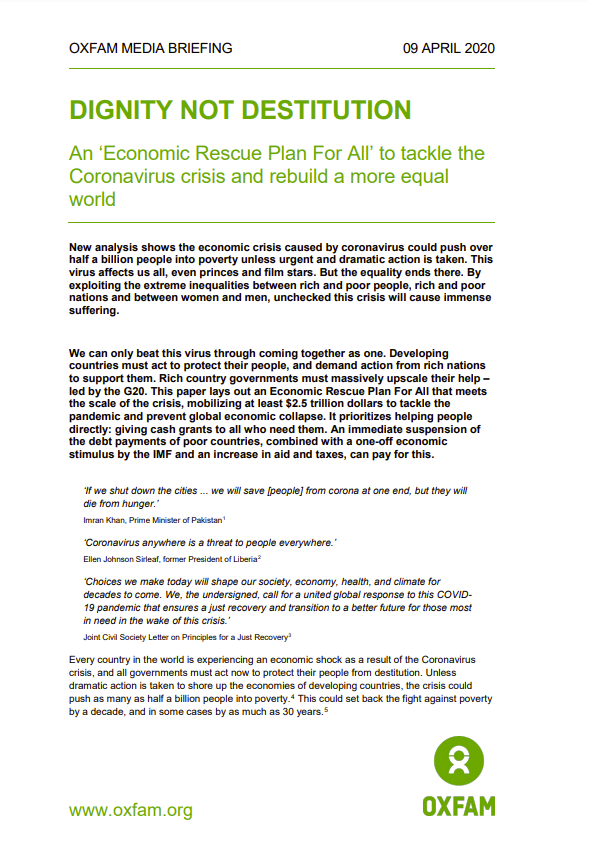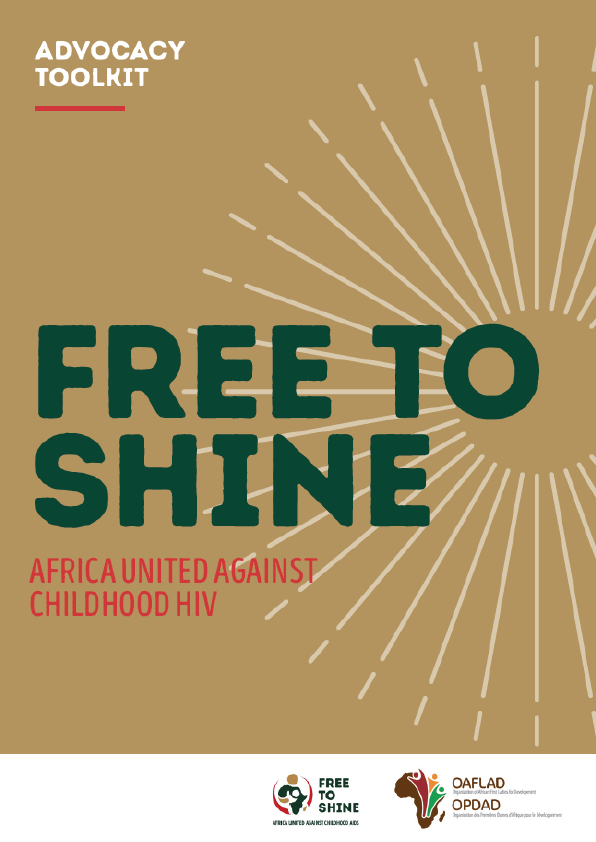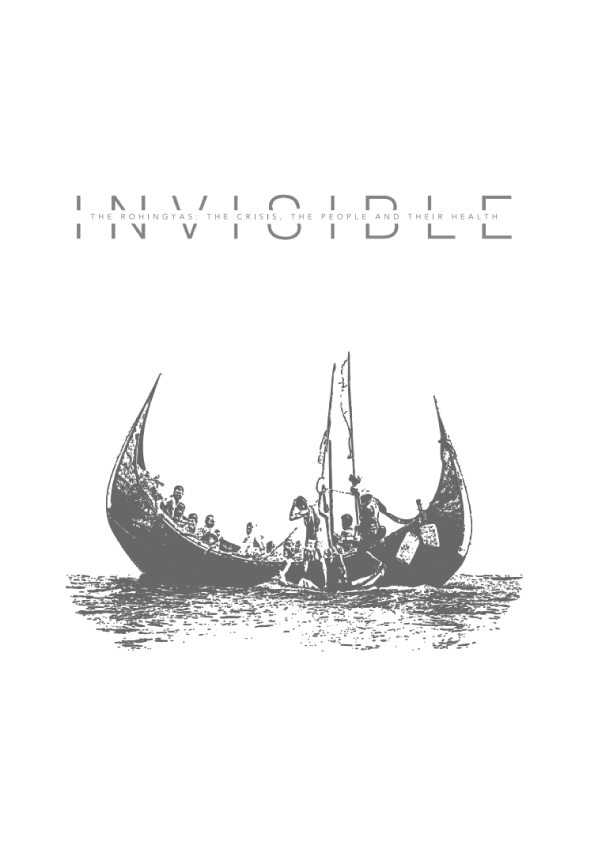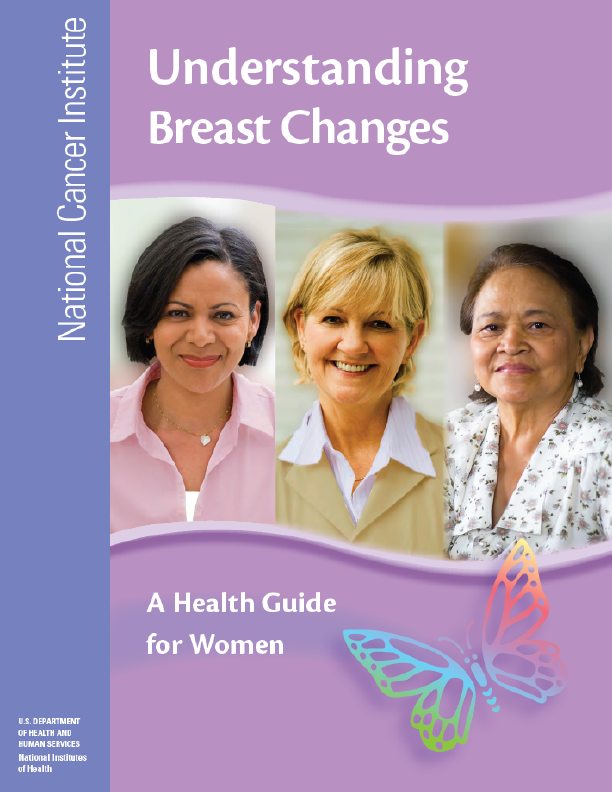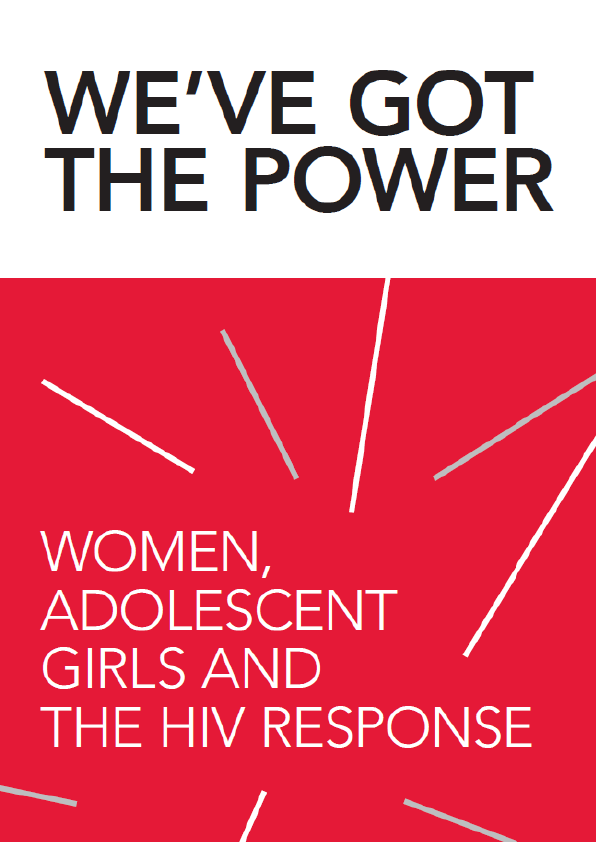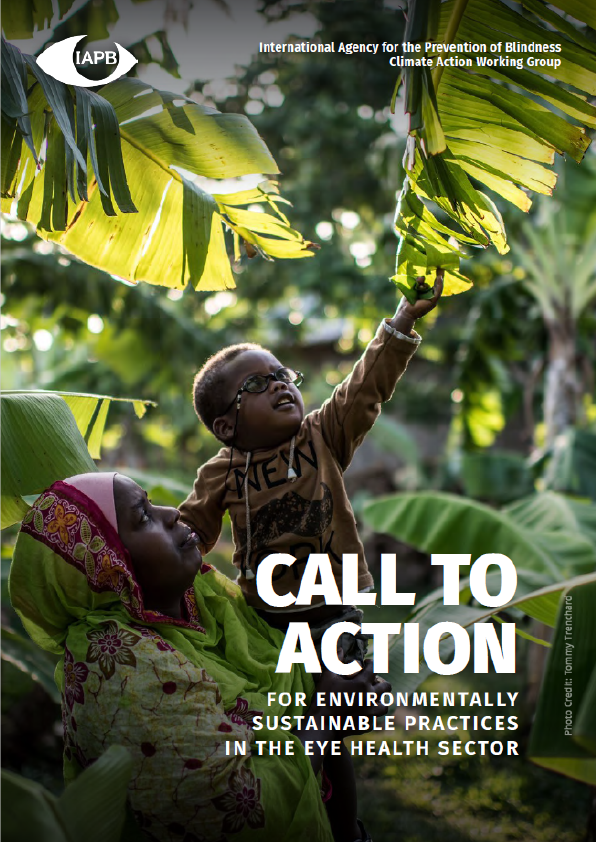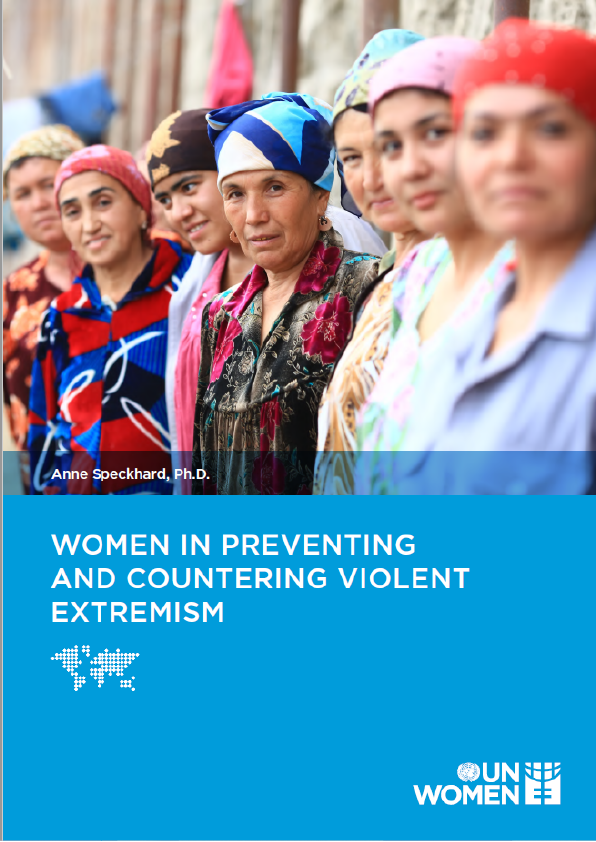Dignity not destitution
An ‘Economic Rescue Plan For All’ to tackle the Coronavirus crisis and rebuild a more equal world
New analysis shows the economic crisis caused by coronavirus could push over half a billion people into poverty unless urgent and dramatic action is taken. The COVID-19 pandemic, also known as the coronavirus pandemic, is a global pandemic of coronavirus disease 2019 (COVID-19) caused by severe acute respiratory syndrome coronavirus 2 (SARS-CoV-2). This virus affects us all, even princes and film stars. But the equality ends there. By exploiting the extreme inequalities between rich and poor people, rich and poor nations and between women and men, unchecked this crisis will cause immense suffering.
We can only beat this virus through coming together as one. Developing countries must act to protect their people, and demand action from rich nations to support them. Rich country governments must massively upscale their help – led by the G20.
This paper lays out an Economic Rescue Plan For All that meets the scale of the crisis, mobilizing at least $2.5 trillion dollars to tackle the pandemic and prevent global economic collapse. It prioritizes helping people directly: giving cash grants to all who need them. An immediate suspension of the debt payments of poor countries, combined with a one-off economic stimulus by the IMF and an increase in aid and taxes, can pay for this.
Every country in the world is experiencing an economic shock as a result of the Coronavirus crisis, and all governments must act now to protect their people from destitution. Unless dramatic action is taken to shore up the economies of developing countries, the crisis could push as many as half a billion people into poverty. This could set back the fight against poverty by a decade, and in some cases by as much as 30 years.
Unchecked, the virus could take as many as 40 million lives.6 Yet the devastation will not end there. All over the world, the virus is having a huge economic impact as economies shut down to try and stop the spread of the disease. The International Labour Organization (ILO) estimates that 25 million jobs could be lost, and that is likely to be a significant underestimate.7 Curfews and lockdowns are causing untold economic hardship. Workers are projected to lose as much as $3.4 trillion in income.8 In countries like Kenya and Cambodia, tens of thousands of factory and farm workers are being told to go home.9 Women workers will be among the hardest hit, as they are more likely to be engaged in informal and precarious work. The International Monetary Fund (IMF) has already said that the world is heading for a recession bigger than that caused by the global financial crisis in 2008.
Developing country governments must act now to protect their people. Sadly in a number of developing countries leaders have been failing their citizens, providing poor governance and engaging in corruption. Many more have not acted to deliver universal healthcare or protect their citizens with cash payments. They have not acted to tackle growing inequalities. In the light of this crisis, this has to change, and developing countries must ensure health and economic security for all. All over the world Oxfam is working with church groups, community organizations, NGOs and others to hold governments to account and make sure they do the right thing for their people at this critical moment.
Developing country governments should also come together to demand action from the G20 and rich nations. Rich country governments must find the resources to help developing countries to avert this catastrophe. It is the right thing to do. It is also in their interests, because if the virus is anywhere, it is everywhere.
At the upcoming Spring Meetings of the World Bank, IMF and G20 Finance Ministers, immediate action must be taken by the G20 and other government leaders which would go a very long way to mitigating the economic impacts and providing direct assistance to ordinary people hit hard by this crisis. Oxfam is calling for an Economic Rescue Plan For All.
